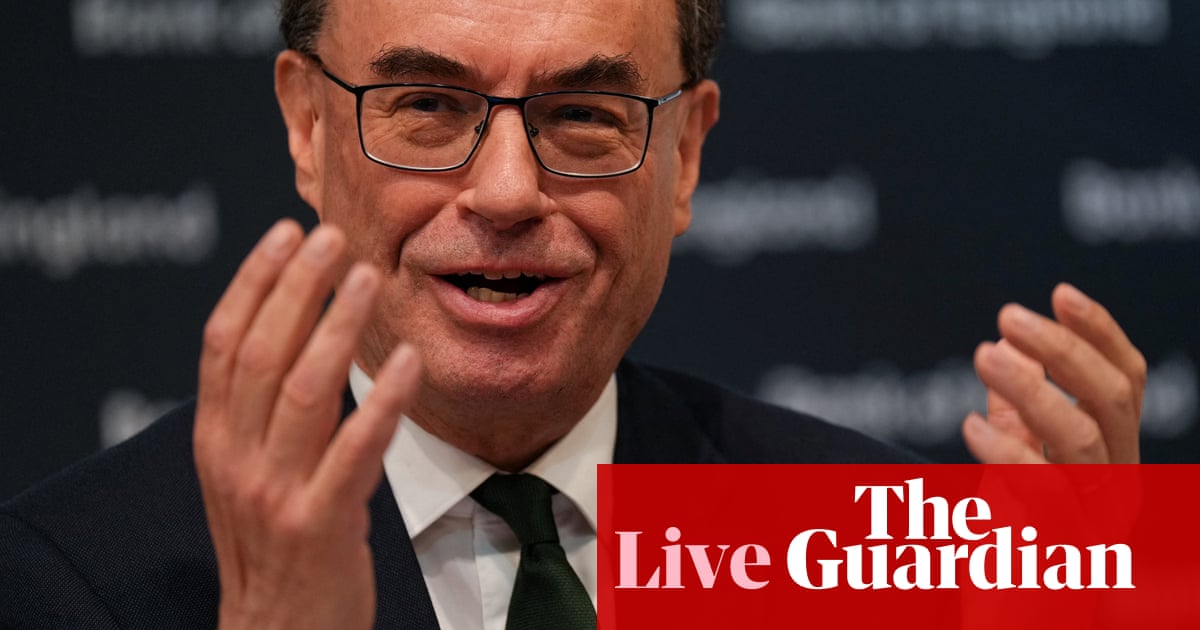Key Events
Please turn on JavaScript to use this feature
UK Must ‘Do Everything’ to Rebuild Trade with EU, Bank of England Boss Says
In a significant address, Andrew Bailey, Governor of the Bank of England, emphasized the importance of re-establishing strong trade ties with the European Union. This commentary comes on the heels of the UK celebrating a new trade deal with the United States, showcasing the complexities of Brexit-era economic relations.
Bailey articulated the need for a renewed focus on forging stronger trade relationships, outlining how reversing the decline in UK-EU trade could provide benefits for the British economy. He remarked, “It would be beneficial. Having a more open economy to trade with the European Union. Because there has been a fall-off in goods trade with the EU over recent years.”
His comments came at a time when the UK is grappling with the repercussions of Brexit, and as Bailey stated, “it is important we do everything we can to ensure that whatever decisions are taken on the Brexit front do not damage the long-term trade position.” This sentiment underlines the need for strategic planning ahead of an upcoming EU-UK summit, which might provide a platform for discussions on improving trade relations.
“I hope that we can use this to start to rebuild that relationship,” Bailey added, indicating optimism about future engagements.
In yesterday’s updates, Bailey also expressed satisfaction over the recent US-UK trade agreement. He commented on the significance of trade deals in the current global landscape, noting that, “Trade deals can be done, and the trade is important.” Yet, despite these efforts, the UK continues to face a challenging situation, including a 10% tariff on shipments to the US, highlighting ongoing hurdles in international trade.
Introduction: Chinese Exports to US Slump
Switching focus to global trade dynamics, recent data reveal a steep decline in exports from China to the US, further complicating the international trade landscape. The latest statistics indicate that shipments to the US plummeted by 21% year-on-year in April, a marked result of the escalating tariff war initiated under former President Donald Trump.
The tariffs imposed on China, which surged to 145% in April, have curbed demand sharply. Correspondingly, Chinese imports from the US have also diminished, with a nearly 14% reduction following a reciprocal tariff escalation from Beijing. This tit-for-tat tactic underscores the volatility that has characterized US-China relations in recent years.
Despite the declines in specific bilateral trade, China’s overall exports saw an impressive rise of 8.1% for the same period, defying forecasts. This paradox is attributed to global shifts in trade patterns, as nations around the world seek to utilize opportunities arising from the 90-day pause Trump implemented earlier in April, enabling them to source materials from China without the same degree of tariff burden.
“The numbers just confirmed what markets already suspected: Trump’s tariff blitz is biting, and hard,” commented Stephen Innes, managing partner at SPI Asset Management. He characterized the shifts in trade relationships as a “structural repositioning,” highlighting that the US is no longer China’s primary growth engine.
Countries like Vietnam, Indonesia, and Thailand are experiencing trade booms as manufacturers redirect their exports amidst the reshuffling of supply chains, capitalizing on the current trade grace periods. This scenario paints a complex picture of resilience, showcasing how nations adapt in response to changing global trade norms.
The Agenda
Looking forward, several notable events are scheduled: at 9:40 AM BST, Bank of England Governor Andrew Bailey will deliver a keynote address at the Reykjavik Economic Conference 2025, followed by a briefing from Bank of England chief economist Huw Pill at 12:15 PM BST regarding national monetary policy. These events promise to provide further insights into the UK’s economic strategies and international trade relationships.


